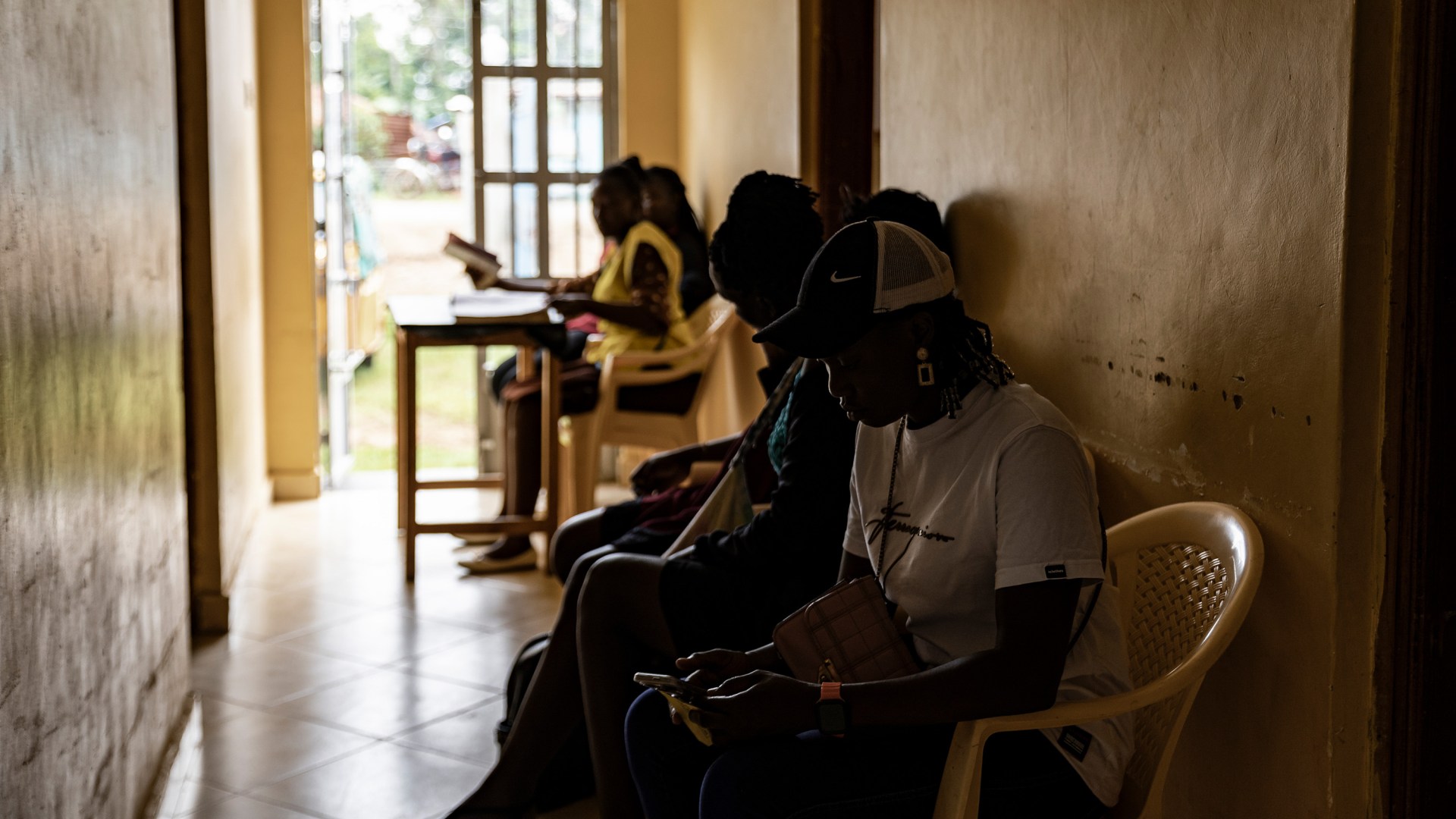Eunice wept bitterly almost every night after she was diagnosed with HIV in 2015. The 40-year-old single mother feared friends and family would stigmatize her and began to sink into depression. She didn’t tell her 13-year-old daughter—not at first. Instead, Eunice walked alone to the church-run St Raphael’s Clinic about a mile away, where she secretly received donor-funded anti-retroviral drugs (ARVs) free of charge.
Eunice lived in a low-income area in Nairobi, Kenya, where one-tenth of the country’s 1.4 million HIV-positive people live. Nairobi is Kenya’s most populous city and has the most people in the nation at risk for HIV, including intravenous drug users. Through clinics that receive funds from the US President’s Emergency Plan for AIDS Relief (PEPFAR), Eunice and others in her area can access free or low-cost ARVs.
The clinic usually gave Eunice six months’ worth of ARVs at each visit. But a few weeks after President Donald Trump’s executive order suspending foreign aid, her nearby PEPFAR-funded clinic gave her only a two-month supply. Staff at the clinic told her that they were rationing the dwindling stocks to ensure that everybody who needed medication got some.
With over 1 million Kenyans living with HIV, access to medication is vital. For more than a decade, many have depended on PEPFAR funds to access daily medications that suppress the virus and extend their life expectancy. Now, unable to take foreign aid for granted, Kenya is looking for ways to fund programs and medications for HIV-positive residents on its own.
President George W. Bush created PEPFAR in 2003 to give low-income countries access to HIV-related medication. Kenya received $92 million during PEPFAR’s first year of operation in 2004. By 2010, the East African nation was one of PEPFAR’s largest beneficiaries, receiving a grant of more than $500 million that year. Other donors like The Global Fund and UNICEF also took up a portion of Kenya’s costs.
The funds covered ARVs and even the counseling sessions that helped Eunice finally accept her condition and reveal her HIV status to her daughter. Today, she credits the counseling and her renewed faith in Christ with helping her live positively.
“I manage my situation by seeking refuge under God’s wings, where I feel safe, loved, and valued,” she said.
Efforts to help PEPFAR-reliant countries support themselves are not entirely new. In 2018, USAID—one of PEPFAR’s main implementing agencies—launched an initiative called Journey to Self-Reliance. That year, PEPFAR funds covered 76.8% of Kenya’s HIV-related spending. Three years later, the number dropped to 60%, then down to 37% in 2023.
Kenya’s government has assigned 72% more money for the health sector in the 2025-26 budget than in the previous year. However, this brings health care funds to only 4.9% of the total national budget—far short of the 15% recommended by the African Union more than 20 years ago. Many African countries have spent between 2.1% and 12% of their budgets on healthcare costs as recently as 2020, according to the World Health Organization (WHO).
Kenya also looks to incentivize Kenyans in the pharmaceutical industry to develop technical skills and integrate specialized HIV facilities with mainstream hospitals and clinics.
“Integration would ensure that HIV patients would no longer have to visit separate facilities for medical care,” said Patriciah Jeckonia, a program manager with LVCT Health, a Kenyan organization offering HIV-related services. This would not only help eliminate stigma but would also reduce the high costs of HIV management.
The government also hopes to enable more local manufacturing of low-cost generic ARVs. Kenya introduced the Value Added Tax exemption in 2023 to give tax breaks for locally purchased pharmaceutical manufacturing equipment. More than a decade ago, the Pharmacy and Poisons Board (PPB) began allowing fast-track registration of locally manufactured and priority medicines, including ARVs.
Kenya-based company Universal Corporation Limited, one of the first in Africa to receive prequalification by the WHO, can produce 1 million generic tablets daily. This includes TLD, a widely used ARV regimen, according to local news sources. This could potentially make 30 million ARV tablets available per month.
Still, uptake of local ARV production has been slow, in part due to the high costs of getting WHO prequalification, purchasing lab and production machinery, and importing active pharmaceutical ingredients.
Two or three manufacturers of similar scale could put Kenya well on its way to self-sufficiency treating HIV. But in the meantime, the abrupt halt of PEPFAR poses a danger to the life and health of Eunice and other HIV-positive Kenyans.
When Eunice asked clinic staff what would happen when her two-month supply of ARVs ran out, they couldn’t provide a clear answer. Eunice’s life continues—her now-23-year-old daughter gave birth to a healthy little girl, turning a delighted Eunice into a first-time grandmother. But the uncertainty about her medications still weighs on her mind.
“To manage this condition, you have to take your medications religiously,” she said.
As a domestic worker who makes a living cleaning and doing laundry, Eunice earns less than $120 USD per month. This barely covers the rent, food, and utilities costs she needs to care for herself, her daughter, and her new grandchild. She said she worries about how paying for ARVs might impact their already-tight budget in the future.
Kenya’s push toward self-sufficiency in HIV management could shield Eunice and others from the impact of US foreign aid changes.
“This is an opportunity for the government to strengthen local capacity,” Jeckonia said, “and provide localized, affordable solutions for HIV management.”
And that may prove to be an unexpected silver lining.














